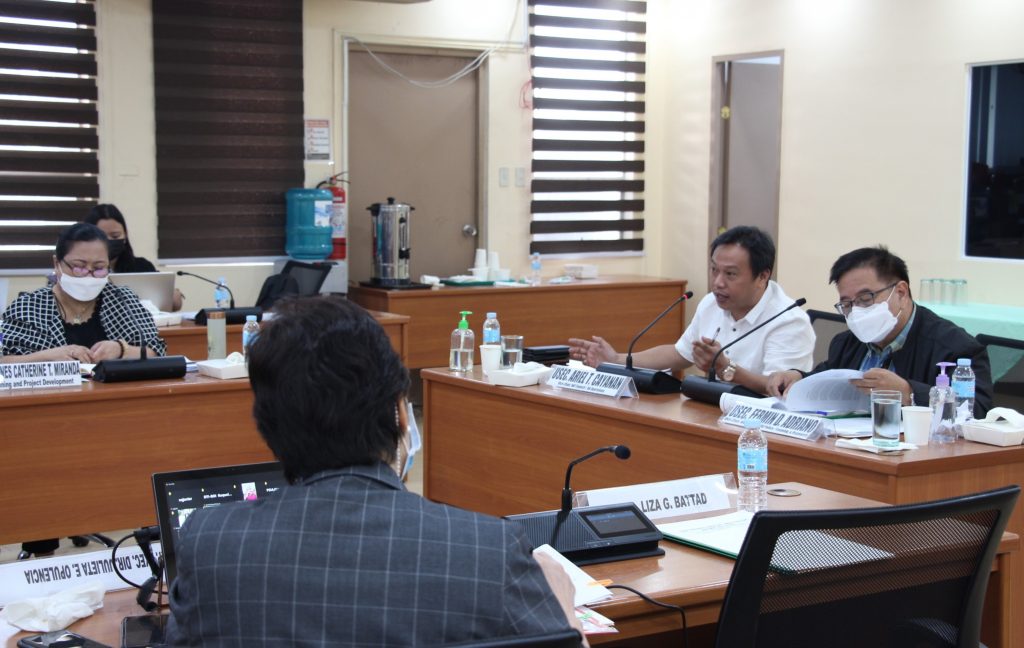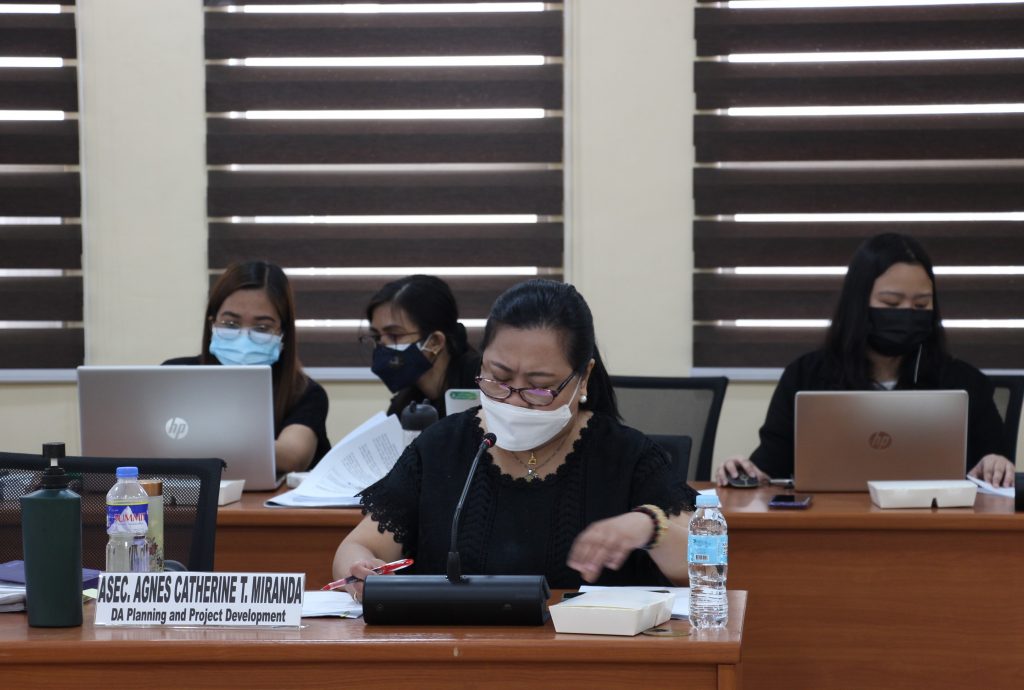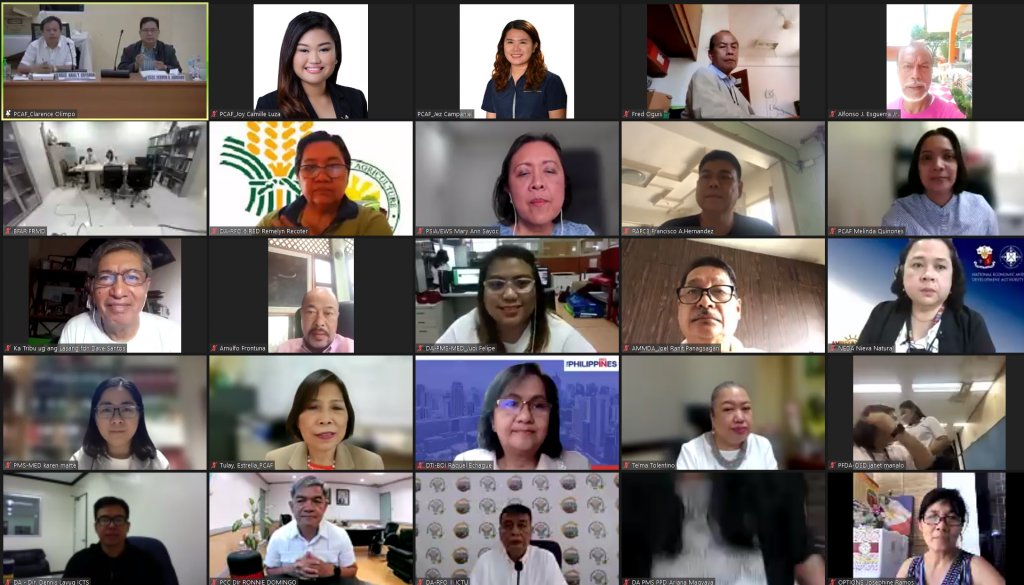
The National Agriculture and Fisheries Council (NAF Council) moved for the endorsement of the National Agriculture and Fisheries Modernization and Industrialization Plan (NAFMIP) 2021-2030 for the approval of the Department of Agriculture (DA) Secretary on April 18, 2022, subject to the inputs given by the members of the Council.
With the vision of “A food secure and resilient Philippines with empowered and prosperous farmers and fisherfolk”, NAFMIP will serve as the sector-wide directional plan for other agri-fishery development plans such as the Province-led Agriculture and Fisheries Extension Systems, the Provincial Commodity Investment Plans, and the Commodity Industry Roadmaps among others.
It was collaboratively developed by various stakeholders, key industry players, and DA, along with its bureaus, attached agencies, and Regional Field Offices, through a series of consultations and workshops that were organized from January to March 2022.

Assistant Secretary-designate for Planning and Project Development and DA-Planning and Monitoring Service Director Agnes Catherine Miranda presented to the Council NAFMIP’s salient features which include the Integrative Food and Nutrition Security Paradigm and the incorporation of strategic communications.
She also discussed the investment needed for the operationalization of NAFMIP, specifically its activities for the pandemic recovery phase (2021-2023), the growth-inducing phase (2022-2030), and the resilience-building phase (2023-2030).
On this, National Banner Program Committee on High Value Crops-Fruits and Vegetables Chairperson Dr. Mary Ann Sayoc asked how DA planned to involve other national government agencies in the implementation of NAFMIP.
ASec. Miranda assured her and the rest of the body that they are continuously coordinating with other national government agencies for support in the activities of the NAFMIP log frame.
“We have seen substantial budget proposals for the agri-fishery sector. For example, [for] DOST-PCAARD (Department of Science and Technology-Philippine Council for Agriculture, Aquatic and Natural Resources Research and Development), we have seen nearly 400 million as part of their Tier 1 budget to support the agri-fishery sector.”

On behalf of the Department of Trade and Industry-Philippine Board of Investments, Resource-Based Industries Service Director Raquel Echague also expressed her support for NAFMIP.
“Recently, we already submitted our strategic investment priority plan. This included food security-related activities for private investments that will give priority to green and organic agriculture, development of vaccines for animal diseases (i.e. African Swine Fever and Avian Flu), integrated food production and processing, hybrid seeds, manufacturing of agri-fishery machinery and equipment as well as agricultural pesticides and fertilizers”, Echague shared.

NAF Council is the apex consultative and advisory body of the DA, which is composed of key government agencies, local government units, private sector entities, non-government organizations, and people’s organizations that sets the goals and defines the scope of the country’s agriculture and fisheries policies, plans, and programs.
The Council also serves as the integrative, consultative, and monitoring structure for inter-agency and inter-sectoral collaboration activities as prescribed by Republic Act 8435 or known as the Agriculture and Fisheries Modernization Act.
PCAF acts as the technical secretariat to the NAF Council. | JCL











